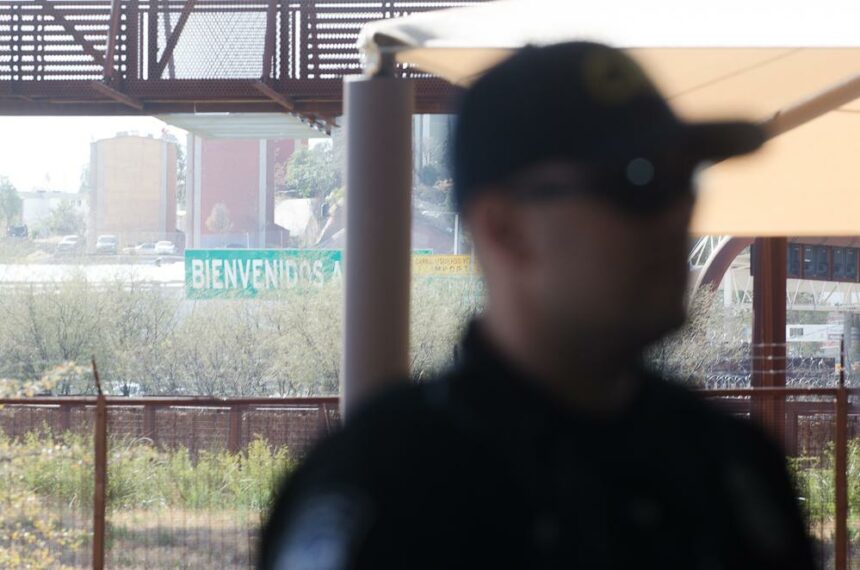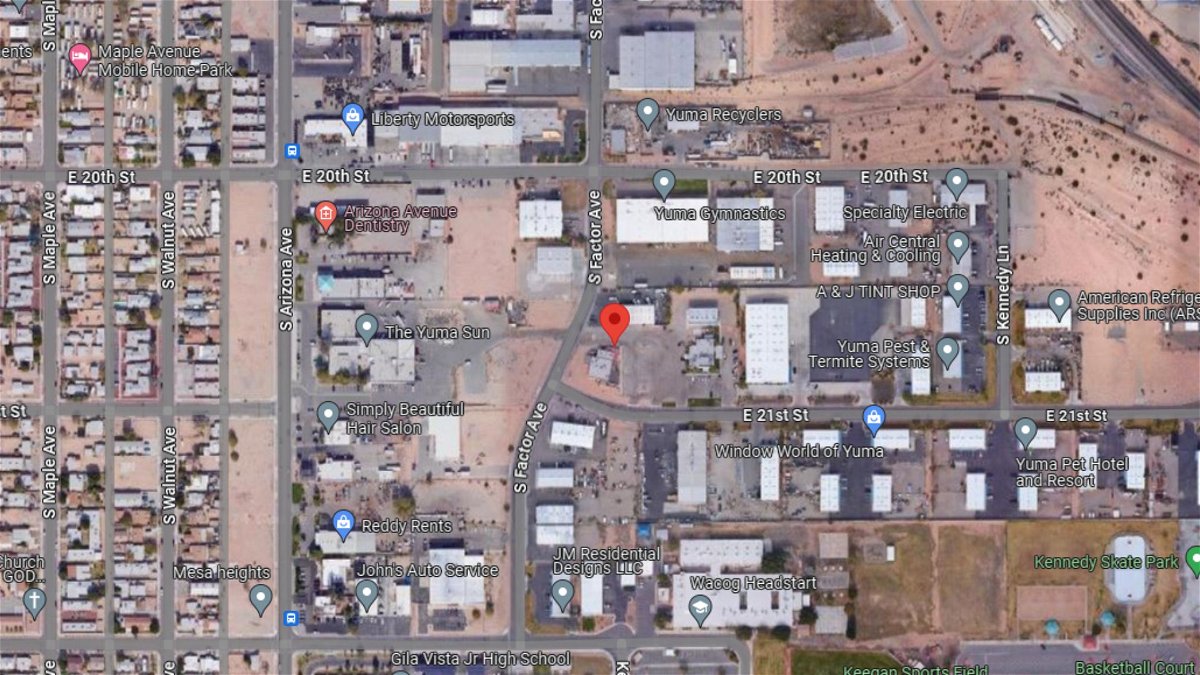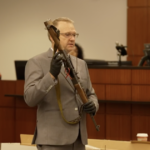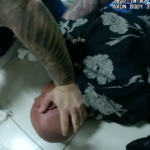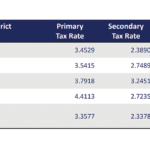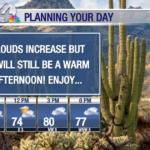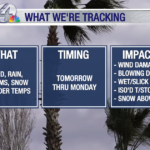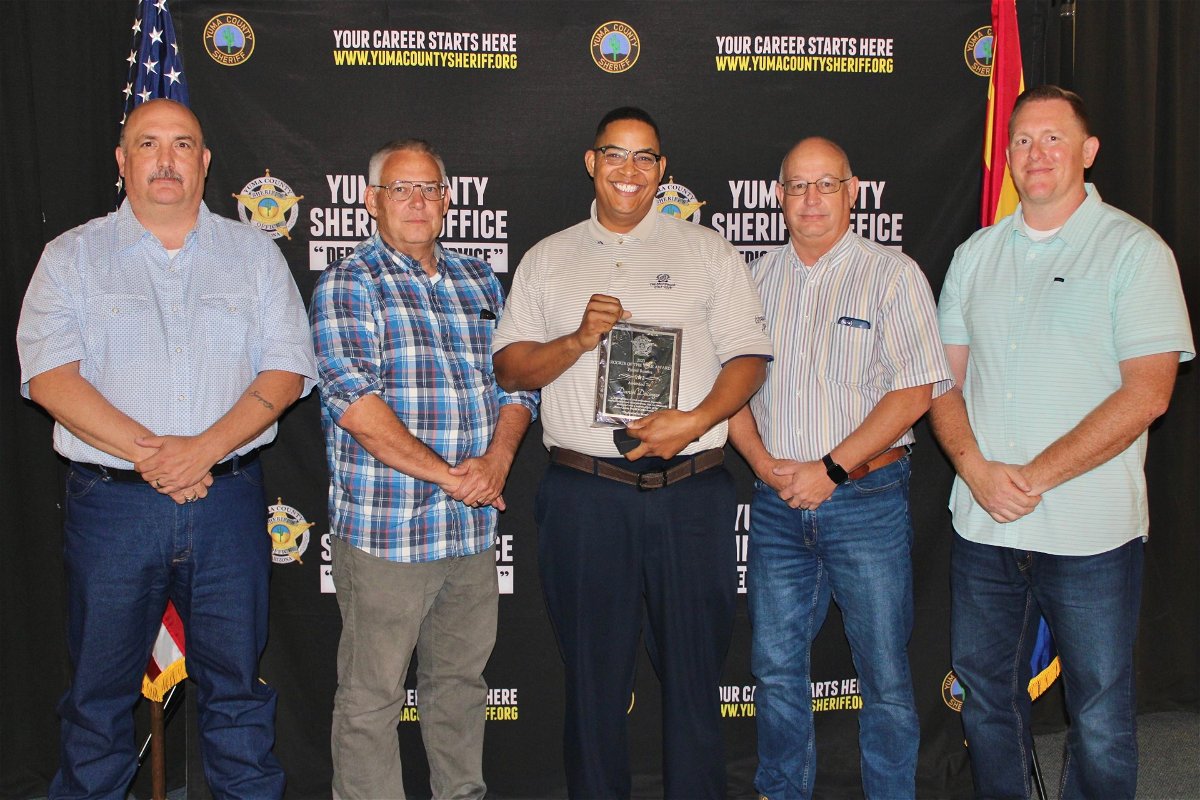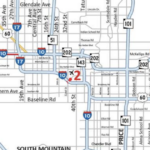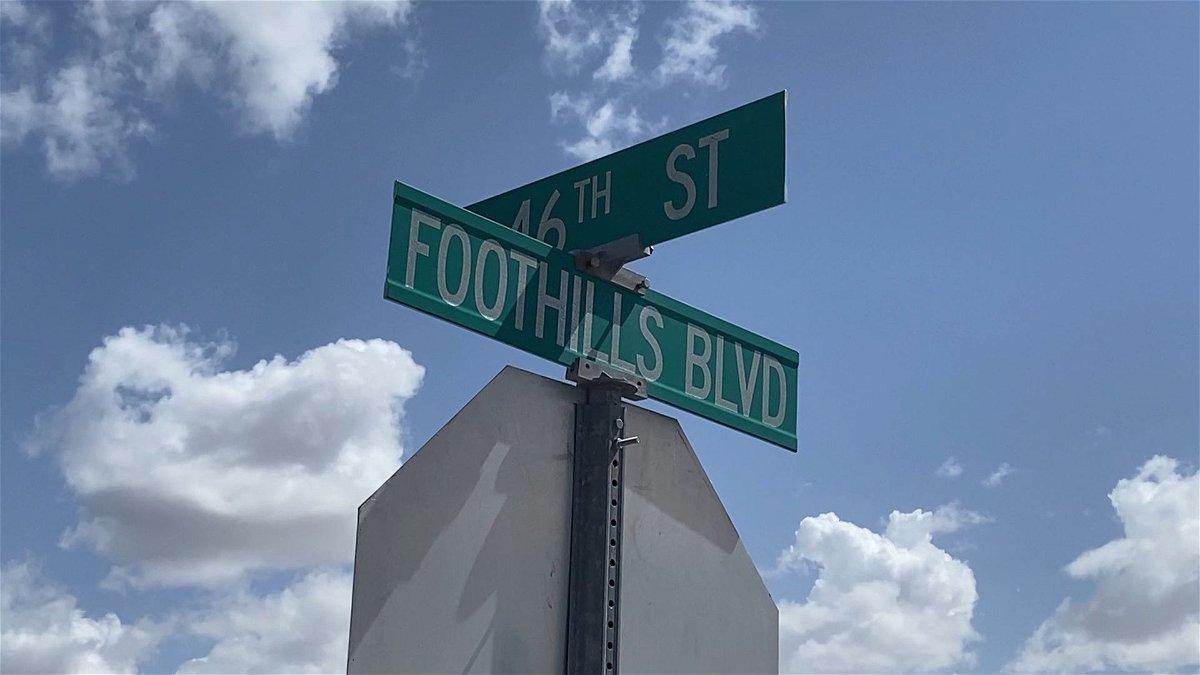A lawsuit launched by the Mexican government against five Arizona gun dealers over illegal firearms purchases will move forward, a federal judge ruled Monday.
In a 32-page decision, U.S. District Court Judge Rosemary Marquez agreed
to dismiss some of the claims against the five stores, but ruled attorneys for Mexico showed the six other claims should move forward.
Frustrated with the United States’ inability to limit gun smuggling,
the Mexican government launched two separate lawsuits. The first suit was filed against gun manufacturer as well a Boston-area
wholesaler in August 2021, and the following October, lawyers with the
Tucson firm DeConcini McDonald Yetwin & Lacy filed a suit against five stores in Arizona — Diamondback Shooting Sports, SnG Tactical, Ammo AZ, Sprague’s Sports and The Hub — arguing they “systematically participate in trafficking military-style weapons and
ammunition to drug cartels in Mexico by supplying gun traffickers.”
The lawsuit was the first brought by a sovereign nation against U.S. gun dealers and argued the stores “know or should know
that their reckless and unlawful business practices – including straw
sales, and bulk and repeat sales of military-style weapons – supply
dangerous criminals in Mexico and the U.S.”
Document: Ruling: Lawsuit vs. Arizona gun dealers to proceed
While most firearms dealers “use safe practices and, as a result, sell no
crime guns” the five stores “choose to sell guns using reckless and
unlawful practices, despite the foreseeability – indeed, virtual
certainty – that they are thereby helping cause deadly cartel violence
across the border,” the attorneys for Mexico argued. “Defendants engage in these reckless and unlawful
actions because it makes them money.”
As the lawsuit moved forward, attorneys for the gun stores moved to dismiss the case, and on Feb. 22, the court held oral arguments in Tucson.
Attorneys for the companies argued the government of Mexico lacked standing to file the suit, and further, said the suit was invalidated by the Protection of Lawful Commerce in Arms Act—a law passed in 2005 that shields firearm manufacturers from civil lawsuits if crimes were committed with their products.
Attorneys for Mexico rejected this claim and said the stores have the “opportunity and obligation” to stop the sale of firearms likely to end up in Mexico, and linked illegal sales—known as straw purchases—to violence in Mexico.
Marquez split her decision, ruling against claims the stores violated Arizona’s Consumer Fraud Act and the federal Racketeer Influenced and Corrupt Organizations Act—known as RICO. She also rejected a claim the sales contributed to a public nuisance.
However, she said the Mexican government adequately showed standing in the case, and further, adequately alleged “repeat sales of military-style weapons creates harms to Mexico and its citizens” and are “fairly traceable to the gun stores’ actions.”
“Drawing all reasonable inferences in favor of plaintiff, the complaint plausibly alleges that, as a result of red flags including straw sales, bulk sales, cash sales, and repeat sales of military-style weapons favored by Mexican cartels, defendants knew or should have known that firearms they sold would ultimately be provided to and used by cartel members for unlawful purposes in Mexico, resulting in violence and economic harm,” she wrote.
She rejected the claim that PLCAA protects the stores from the suit, and ruled that arguments the five stores are negligent could move forward. In her ruling, Marquez wrote she was “unconvinced” by arguments the 2nd Amendment and state law “negate recognizing a duty of care here.”
“The 2nd Amendment does not protect unlawful firearm sales,” she wrote.
Decision a ‘huge step’
Jonathan Lowy, the president of the Global Action on Gun Violence, and
one of two attorneys representing Mexico along with co-counsel Steve Shadowen, praised Marquez’s decision.
“Today’s ruling is a huge step forward in holding the gun industry
accountable for its contribution to gun violence, and in stopping the
flood of trafficked guns to the cartels,” said Lowy. “We look forward to
now proving our case in court.”
A nonprofit based in the U.S., Global Action on Gun Violence is representing Mexico in both lawsuits, and is launching a case before the Inter-American Commission for Human Rights, arguing guns from the U.S. violates its human rights obligations. GAGV pursues litigation and policy changes to reform the gun industry in a move to “to stop cross-border gun trafficking and reduce gun deaths and injuries,” the group said.
As Lowy noted, Marquez’s decision follows a Jan. 22 decision by the 1st Circuit Court of Appeals, which revived Mexico’s earlier challenge against gun manufacturers. GAGV is also pursuing a class-action lawsuit in Canada.
In the first lawsuit, the Mexican government said weapons made by U.S.
companies move through “operación hormiga,” or an “ant operation,” as
people purchase small numbers of firearms through straw purchases in gun
store — including stores in Tucson and Phoenix — and smuggle the
weapons into Mexico.
Mexican officials said companies, including Smith & Wesson and Strum, Ruger & Co., earn nearly $170 million in annual sales by illegally selling their weapons to corrupt dealers in the U.S. Further, the Mexican government argued Colt Manufacturing tailors three .38 caliber pistols for the Mexican market, including the “Emiliano Zapata 1911” which includes the phrase “It is better to die standing than live on your knees” often attributed to the eponymous Mexican revolutionary.
As the Mexican government noted, a Colt .38-caliber pistol was used to murder the well-known investigative journalist Miroslava Breach Velducea in 2017.
That case nearly ran aground, but the appellate court’s decision created
a complex legal landscape for the case in Arizona that could head to
the U.S. Supreme Court.
Sales a ‘drop in the bucket’
During February’s hearing in Tucson, the attorneys for the stores challenged Mexico’s lawsuit.
The courts “do not exist to make a political point or provide an avenue for a party’s frustration,” said attorney John Malsch.
He argued Mexico’s claims against the five federally licensed dealers are not “fairly traceable to the harm and the relief being sought could never redress that harm” because there are three other parties involved who help move firearms from dealers in the U.S. to the cartels in Mexico. “Straw purchasers, traffickers and people who committee crimes, are independently making their own cognitive decision to break the law. If any one of these three classes decided to do the right right, we’re not here.”
However, Marquez—an appointee of President Barack Obama—noted that in the other case the gun stores are two steps closer from the links that bring guns to Mexico than gun makers. Malsch told Marquez while gun makers may advertise to Mexican cartels, the stores don’t have a choice in the naming of weapons or advertising.
The attorney for the gun dealers also argued against Mexico’s claim that some gun sales, including multiple purchases of semi-automatic rifles and pistols, could be a red flag. He noted firearms dealers inform the Bureau of Alcohol, Tobacco and Firearms and state officials when someone buys multiple weapons.
“It can’t be a red flag just to sell a firearm that’s legal in the U.S.,” Malsch said. “It’s legal to sell more than one gun at a time. That isn’t an indicator of trafficking.”
Malsch noted the five stores were responsible for just a few firearms recovered following cartel-led violence.
While Mexico’s attorneys argued the stores were in the “top 10” of stores that sold guns traced from Mexico to the U.S., Malsch said the companies were not the “only sources of firearms” in Arizona, arguing there are 1,500 dealers in Arizona, and nearly10,000 in border states. And guns could be purchased at flea markets, gun shows, and through private transactions, he said.
The stores he’s defending sold just 47 firearms recovered in Mexico, a “drop in the bucket.”
“I don’t see how 47 firearms recovered from these five defendants positively reduce firearms and cartel violence in Mexico,” he said. “If these dealers closed their doors today, if would not change the dynamic in Mexico, whatsoever.”
Judge Marquez rejected this argument. “Although a favorable decision in this matter would not relieve all” of Mexio’s alleged injuries, “it would reduce the alleged harm to some extent” she wrote, adding they met a “relatively modest” burden.
She also rejected Malsch’s argument Mexico lacked standing. Under the doctrine of parens patraie—a government has the legal responsibility to protect its citizens—Mexico is alleging that “firearm violence affects a substantial segment of the population of Mexico.”
Stores have ‘opportunity and obligation to stop’ straw purchases
Lowy argued the case against gun manufacturers like Smith & Wesson is “a little different” from his case, but the decision from the court of appeals “makes this case stronger and easier.”
“As your honor pointed out, there are fewer steps between defendant’s misconduct and the injury,” he said, adding there “overwhelming support holding that firearms dealers can be liable under federal law.”
He said gun traces show buying patterns and there are “indicators” of gun trafficking, including repeated purchases of the same weapon.
“Any reasonable person would think, ‘Why do you need 10 assault weapons and a sniper rifle?'” Certain buying patterns can indicate someone is trafficking weapons, Lowy argued.
A gun store can observe a person in the store, and they have the “opportunity and obligation” to stop straw purchases. In their filings, the attorneys showed the 1st Circuit Court said Mexico “adequately alleges that defendants have been aiding and abetting the sale of firearms by dealers in knowing violation of relevant state and federal laws.”
Further, the appellate court ruled that while “one can fashion a multi-step description of the causal chain this does not mean that the injurious conduct and the injury alleged are insufficiently connected.”
He also argued against the idea the PLCAA creates immunity for the gun dealers. Marquez agreed, ruling PLCAA allows for legal action if a manufacturer or seller “knowingly violated” a state or federal law “applicable to the sale or marketing of the product, and the violation was a proximate cause of the harm for which relief is sought.”
During the hearing in February, Marquez asked if the convictions of straw purchasers show the system is working. Lowy disagreed, arguing that while some people are arrested, they are often arrested after they trafficking multiple weapons and this “doesn’t solve the problem.”
Lowy said Mexico’s is asking for injunctive relief, money, as well as federal monitors to review gun purchases at the stores. He added New York City installed monitors at some gun stores following a lawsuit and studies showed a “tremendous” drop in the flow of guns in the city.
Steve Shadowen — a Texas litigator and co-counsel for the Mexican government in the suit — noted there were dozens of federal indictments of straw purchases linked to gun stores in Arizona. “It makes our head spin, how could someone go forward with that transaction?,” he said.
In February, a former college student was sentenced to 21 months in prison for buying at least 15 weapons—including AK-47-style weapons and a .50-caliber sniper rifle—for a former State Department driver who smuggled weapon into Mexico. He was paid $1,000 for each purchase, and over a few months, he bought multiple weapons and thousands of rounds of ammunition.
Shadowen argued while only a few dozen guns were recovered in Mexico studies showed that for every weapon recovered there are 18 to 45 weapons trafficked.
“By that math, the number per year isn’t 47,” he said. “It’s between 846 and 2,115.” The argument that a few guns do not contribute to Mexico’s violence was flawed, he argued.
“Imagine how you react your honor, if you went down to the border and these defendants were standing there with 2,000 guns ready to hand them over,” he said. “How would any one react if we said we cannot enjoin them because it’s only 2,000 guns and there already are thousands of guns in Mexico?”
The five stores “facilitate the trafficking of high-power weapons to our country,” said Mexico’s Foreign Affairs Ministry, in a statement in February. “The Government of Mexico emphasized that, although companies consider that the number of weapons trafficked that are attributable to their sales is marginal, they cause death and pain in our country.”
“Therefore, it is irrelevant if it is a matter of many or few weapons that arrive illegally in our territory as a result of neglected commercial practices. Mexico insisted on the importance of ending arms trafficking and the need for the companies that sell them to contribute to this end, conducting their activities responsibly and carefully.”
During the hearing last month, Marquez asked if she should wait to see if the Supreme Court agrees to hear the case from Massachusetts. Malsch, the defense’s attorney said she should wait for the Supreme Court to consider the case, likely to happen in the next six months. Lowy disagreed and said the case should move forward because Mexico is “suffering a tremendous public safety problem from the pipeline of guns flowing across border to the hands of the cartels.”
Source link
Paul Ingram , www.tucsonsentinel.com
border Vivrr Local | TucsonSentinel.com , 2024-03-25 19:41:19
Categories:
Tags: breaking, news, politics & government, border, crime & safety, local, arizona, , atf, cbp, diamondback shooting sports, global action on gun violence, gun control, gun smuggling, guns, hsi, john malsch, jonathan lowy, justice dept, nogales, rosemary marquez, steve shadowen, Mexico's lawsuit vs. Arizona gun dealers survives legal challenge, , Tucson, Tuscon, TucsonSentinel, Tucson Sentinel, TusconSentinel, Tuscon Sentinel, Sentinal, TucsonSentinal, Tucson local news, Tucson news, University of Arizona, UA, Arizona news, Ariz., AZ, Arizona, Marana, Oro Valley, Green Valley, Sahuarita, Pima County, Mexico, Nogales, immigration, Border Patrol, Tucson Citizen, TucsonCitizen.com



